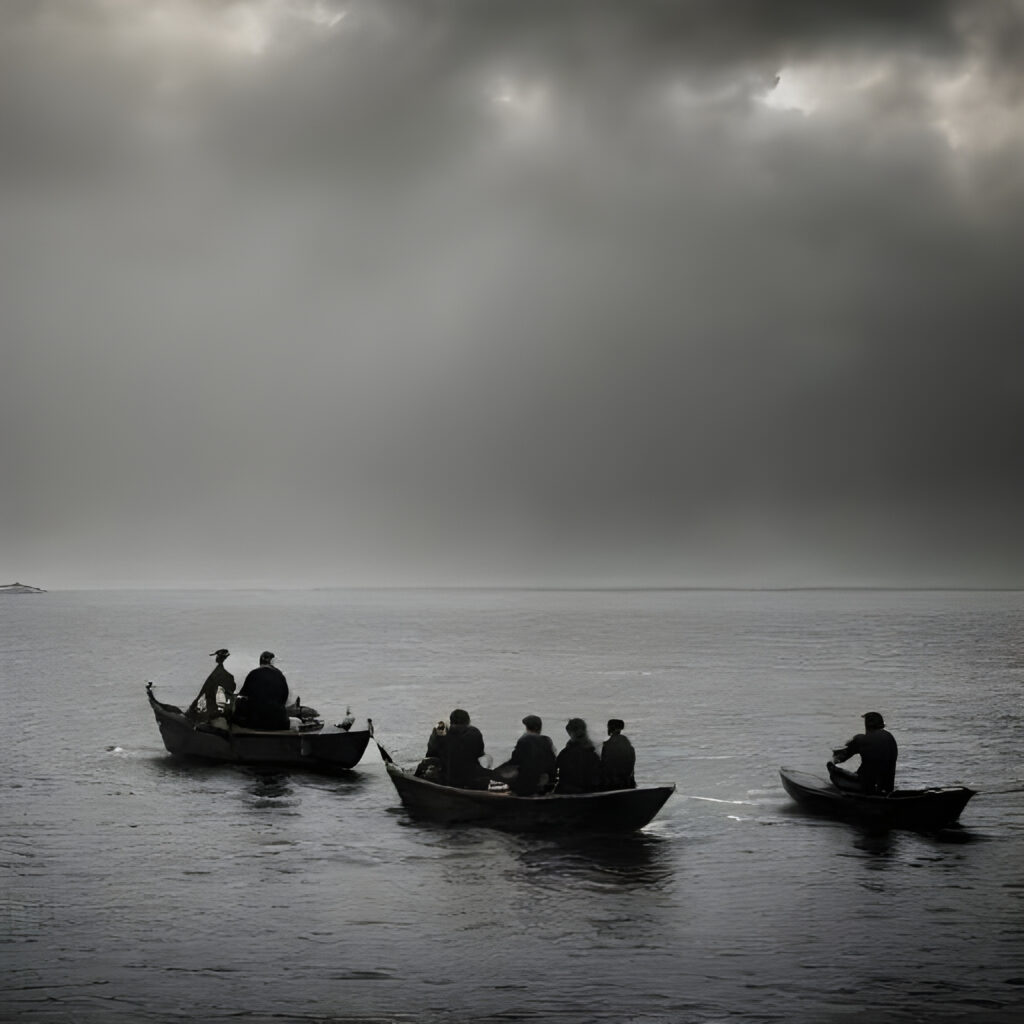Why Did They Come?

The North Sea is a dangerous body of water. What made many thousands of people embark on small boats and set out on the whale road so that they might arrive at a cold wet island in the sea?
There’s no single answer. Some may indeed have come as conquerors. In the fifth and sixth centuries Britain had split into a myriad petty kingdoms, many of which were so small and fleeting as to leave no trace of their existence. In such a context, a determined warlord with a retinue of fifty warriors could ta control of a kingdom and proclaimed himself its king. But amid the political chaos and worsening climate of the time, other people may well have arrived as refugees, pitching up together in a boat hoping to find better land to farm and a new beginning. Some may have been a combination of both: people going into exile after a defeat and finding the opportunities in the new country better than their prospects should they return.
No one story tells the tale and future work should reveal more of the nuances of what happened during those obscure centuries when Britain went from Britannia, where people spoke British Celtic and British Latin, to a land split into many kingdoms where people in the south, east and midlands spoke Old English and the people in the west spoke what was becoming Welsh and Cumbric, and Cornish.
0 Comments